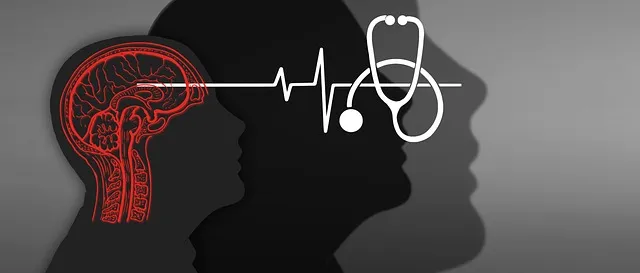Kaiser Permanente's Kaiser Permanente mental health Centennial prioritizes holistic crisis intervention through evidence-based practices, patient empowerment, and community engagement. Their Mental Health Education Programs promote open dialogue, destigmatize mental illness, and offer personalized support tailored to diverse needs. Initiatives like mindfulness training, social skills development, and conflict resolution techniques empower individuals and communities, reducing psychological distress and fostering long-term mental wellness.
“In the realm of mental health care, crisis intervention plays a pivotal role in supporting individuals during unprecedented times. This article explores essential strategies from the perspective of Kaiser Permanente Mental Health Centennial, a leading provider of innovative healthcare solutions. We delve into ‘Understanding Crisis Intervention’ to uncover its significance, followed by an examination of effective response techniques and their real-world impact. By drawing on Kaiser Permanente’s expertise, this guide offers valuable insights into crisis intervention practices at the Centennial level.”
- Understanding Crisis Intervention: A Kaiser Permanente Mental Health Centennial Perspective
- Strategies for Effective Response: Tools and Techniques from the Kaiser Permanente Expertise
- Implementation and Impact: Real-world Applications of Crisis Intervention Strategies at Centennial
Understanding Crisis Intervention: A Kaiser Permanente Mental Health Centennial Perspective

At Kaiser Permanente, with its rich history spanning over a century in mental health services, we understand that crisis intervention is not just a momentary fix but a strategic, evidence-based approach to support individuals during times of severe emotional distress. Our Mental Health Education Programs Design focuses on empowering both patients and healthcare providers with the skills to recognize and respond to crises effectively. We believe in fostering a culture where conversations about mental health are normalized, encouraging early intervention, and reducing the profound impact of stigma.
Over the years, our efforts have been dedicated to not only treating acute episodes but also preventing them. This involves addressing underlying factors contributing to mental illness, such as Depression Prevention initiatives, which aim to equip individuals with coping mechanisms before a crisis occurs. By integrating these strategies within our community-centric approach, Kaiser Permanente ensures that mental health support is accessible and tailored to meet the unique needs of each individual, reflecting our commitment to the Kaiser Permanente Mental Health Centennial.
Strategies for Effective Response: Tools and Techniques from the Kaiser Permanente Expertise

Kaiser Permanente, renowned for its healthcare expertise, offers valuable insights into crisis intervention strategies. Their approach emphasizes a holistic view of mental health, recognizing that effective response involves a blend of tools and techniques. One key strategy is integrating Emotional Regulation methods, such as mindfulness and cognitive-behavioral therapy, to help individuals manage intense emotions during crises. These techniques promote Emotional Well-being Promotion, enabling people to develop coping mechanisms and enhance their resilience.
Additionally, Kaiser Permanente highlights the significance of community engagement through Public Awareness Campaigns Development. By educating the public about mental health issues, these campaigns foster a supportive environment, reduce stigma, and encourage early intervention. This collective effort ensures that crisis intervention services are not just accessible but also integrated into the fabric of communities, ultimately improving outcomes for those facing mental health challenges in Centennial and beyond.
Implementation and Impact: Real-world Applications of Crisis Intervention Strategies at Centennial

At Kaiser Permanente mental health Centennial, the implementation of crisis intervention strategies has significantly impacted real-world applications, demonstrating their effectiveness in managing and preventing severe psychological distress. These strategies, often tailored to diverse populations, play a pivotal role in fostering resilience among individuals facing various challenges. For instance, Social Skills Training has been instrumental in helping at-risk youth develop coping mechanisms and enhance their problem-solving abilities, thereby reducing the likelihood of crisis situations.
Similarly, Conflict Resolution Techniques have proven valuable in resolving interpersonal conflicts within the community, promoting mental well-being on a broader scale. By integrating these evidence-based practices into daily operations, Centennial has not only improved immediate crisis outcomes but also contributed to the long-term Mental Health Awareness and overall health of the region’s residents, ensuring a more supportive and resilient environment for all.
Crisis intervention strategies, as guided by Kaiser Permanente’s Mental Health Centennial perspective, offer invaluable tools for navigating turbulent times. By implementing evidence-based techniques, as highlighted in their expertise, we can significantly enhance our response to individual and collective crises. The real-world applications at Kaiser Permanente Centennial demonstrate the profound impact these strategies can have, fostering resilience and recovery. Embracing this approach ensures a more prepared and compassionate society, equipped to support those facing mental health challenges during their most vulnerable moments.






